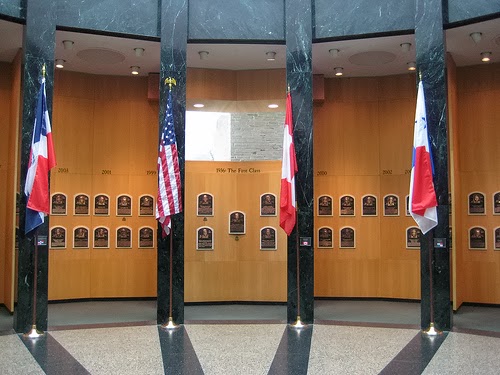The National Baseball Hall of Fame induction vote never fails to disappoint.
In 2014, three players, Greg Maddux (97.2%), Tom Glavine (91.9%) and Frank Thomas (83.7%), received the necessary 75% or greater vote to gain induction into the Hall. Longtime Houston Astro Craig Biggio fell short at 74.8%, a minuscule two votes away from legendary status.
Compared to the nonexistent class of 2013, this year's ballot may indeed seem like less of a snubbing overall, but nevertheless, the Baseball Writer's Association of America did not fail to enforce its omnipotent agenda onto the shrine of baseball's history.
Perhaps the most opinionated and dishonest Hall of Fame committee in professional sports, the BBWAA is notorious for its writers not voting for players (or at all) for arbitrary reasons.
Even for Tom Seaver, who received the highest vote percentage of all time in 1992 (98.8%), one association member did not cast a vote because he never voted for any player on their first ballot.
A similar instance occurred in this election, when MLB.com's Ken Gurnick stated he did not vote for first-year elect Greg Maddux because Gurnick excluded "everybody from the steroid era" [AP].
The BBWAA defines their criteria, as per their website, as:
Voting shall be based upon the player's record, playing ability, integrity, sportsmanship, character, and contributions to the team(s) on which the player played.I don't think it's only I who can't find the clause where writers are permitted to make up their own rules.
The most notable of the writers' robberies were the potential plaques of Craig Biggio, Mike Piazza, Jack Morris, Jeff Bagwell, and Time Raines, all of whom have respectful enough careers worthy of Cooperstown's enshrinement. The latter four each received less than 63% of votes.
So the heartbreaking and passionate rants from baseball fans aside, the infuriating truth to it all is that the Writer's Association's members are of the belief that their votes, the ones they are blessed and lucky to be given in the first place, are objects that can be sold, cast at personal whim, or not even cast all.
It is almost as if the BBWAA is a class of high school girls, and the Hall of Fame election is its junior prom. Its writers consistently enjoy the abusive pleasure of playing Baseball God, and they are willing to change history for petty personal malices they may have against each other, players, teams, executives, whomever.
Year after year, baseball's historic museum is made a mockery by the childish logic these writers use to grow distaste in the sport they are supposed to represent. This kind of corruption and blatant incompetence should not continue to decide who is permanently engraved in the history of America's pastime.
The ballot itself is inane. Why can voters only grant 10 players entry to the Hall? It creates a juvenile hierarchy within those who are elected; better players are usually voted in on the first ballot, though this should not be so.
If the BBWAA's Board of Directors wanted all deserving players to get in, electors should be allowed to cast votes for all of those players.
If that board had any sense, we wouldn't be wondering why the likes of a Gil Hodges or a Pete Rose may be forgotten in Cooperstown one day. The history of this sport happens every day, and it is the responsibility of its Hall of Fame to make sure that the most famous and influential players are recognized for their accomplishments.
However, as we all know, baseball is a business; so long as their museum makes money we can rest assured that these writers will continue to deface our Hall of Fame.
I for one, am disappointed and disgusted, as I always am. And I know I will continue to be so long as the Baseball Gods continue smiting the truth of our beloved sport.


I couldn't agree more about the absurdity of the 10 man limit. Why put a restriction on responses to yes or no questions? As far as the archaic adoration of healthy round numbers (i.e. 300 wins), I suppose we'll just have to wait until more modern minds take the Raines...pun intended.
ReplyDelete